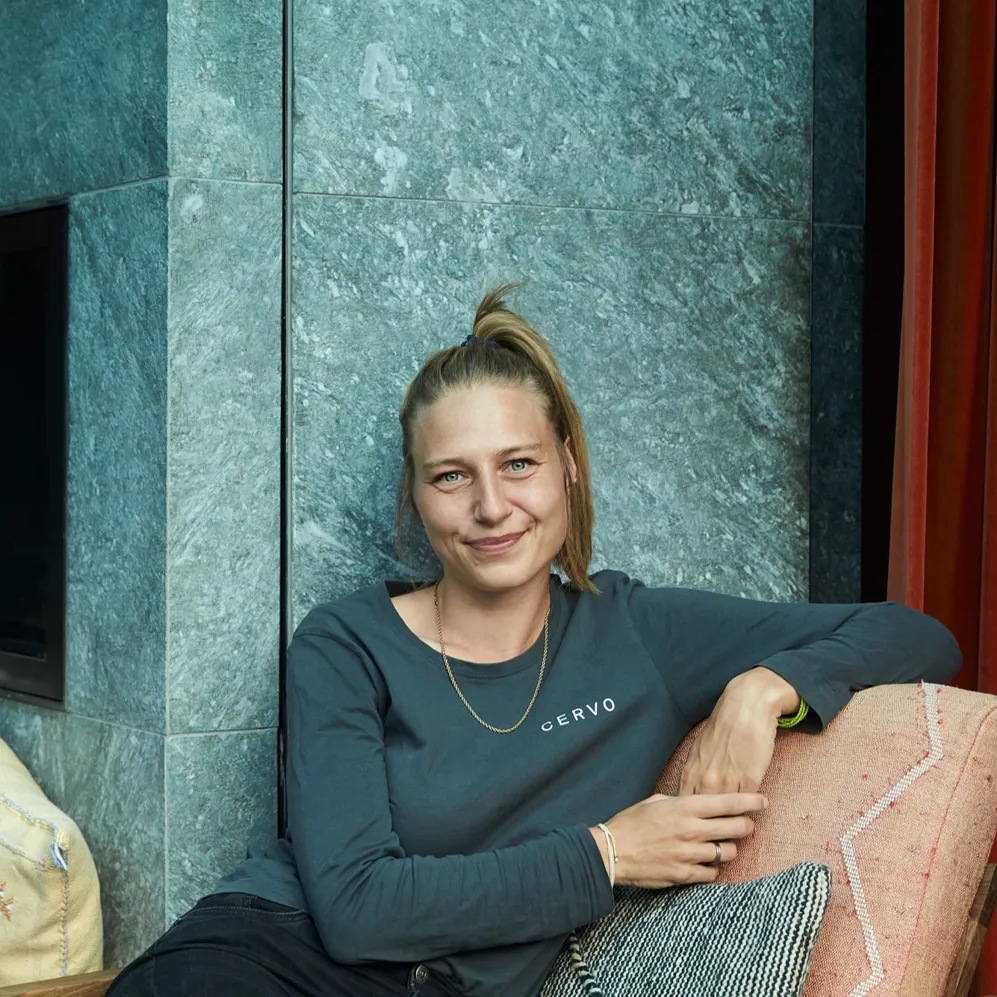
Image Jaclyn Locke
Words Allison Reiber DiLiegro Date 18 November 2021
Dias de Rezende, the Sustainable Development Manager at Cervo Mountain Resort, planted the seed for her future role while traveling. She encountered permaculture—an approach to developing self-sufficient agricultural ecosystems—in Australia, where the movement was born. She traveled to South America, where she learned about the livestock supply chain, and spent a transformative stint in India. “I saw how our environment is perfect on its own and, on the other hand, how we destroy it with so much waste.” She met students of Ernst Götsch, a Swiss researcher renowned for his work in regenerative agroforestry. Then, she studied sustainable business administration. “All of these things were different puzzle pieces for me.”
She landed at Cervo at the right time. The hotel was about to undergo a major renovation, bringing with it a renewed commitment to sustainability. Daniel Lauber, the co-creator of the hotel, tasked Dias de Rezende with bringing these visions to life. Since then, the hotel has made impressive strides, earning Ibex gold certification and crafting an inspiring food and beverage program that includes a thriving herb garden, a vegetarian restaurant, a hyper-local Swiss restaurant, and an artisanal Italian restaurant. We spoke with Dias de Rezende about her learnings, her challenges, and why she’s optimistic about the future.
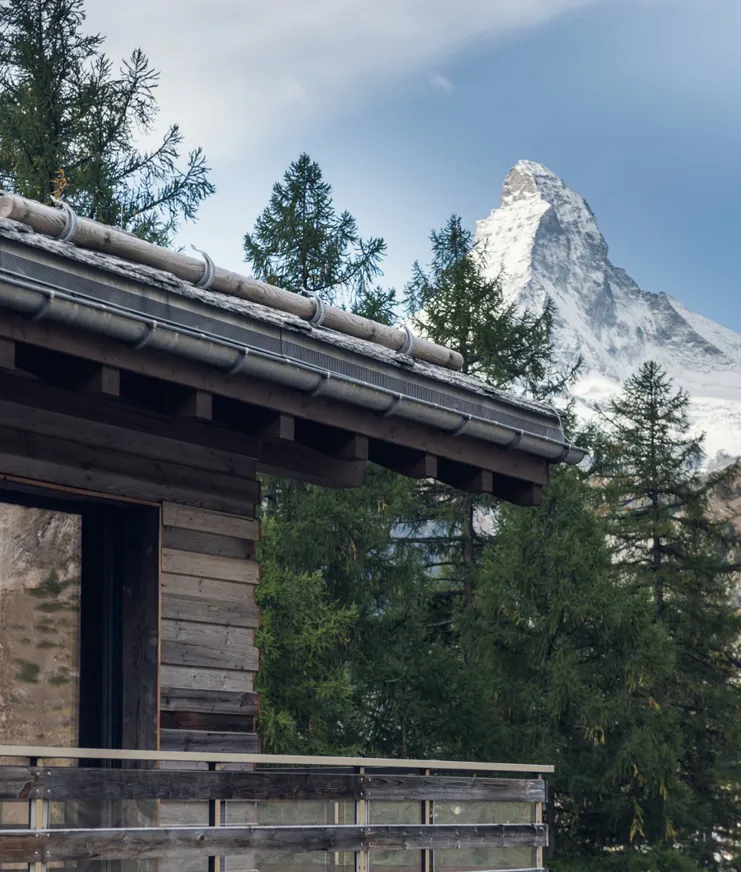
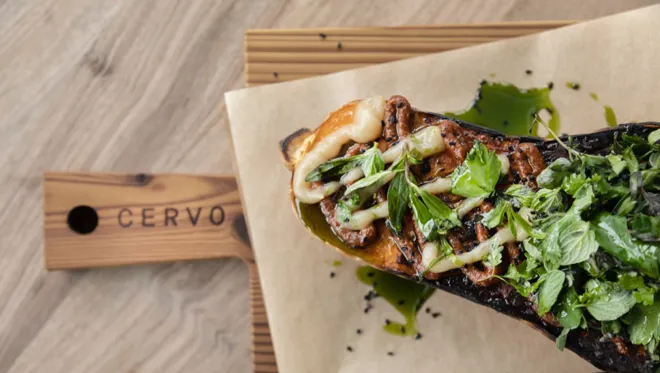
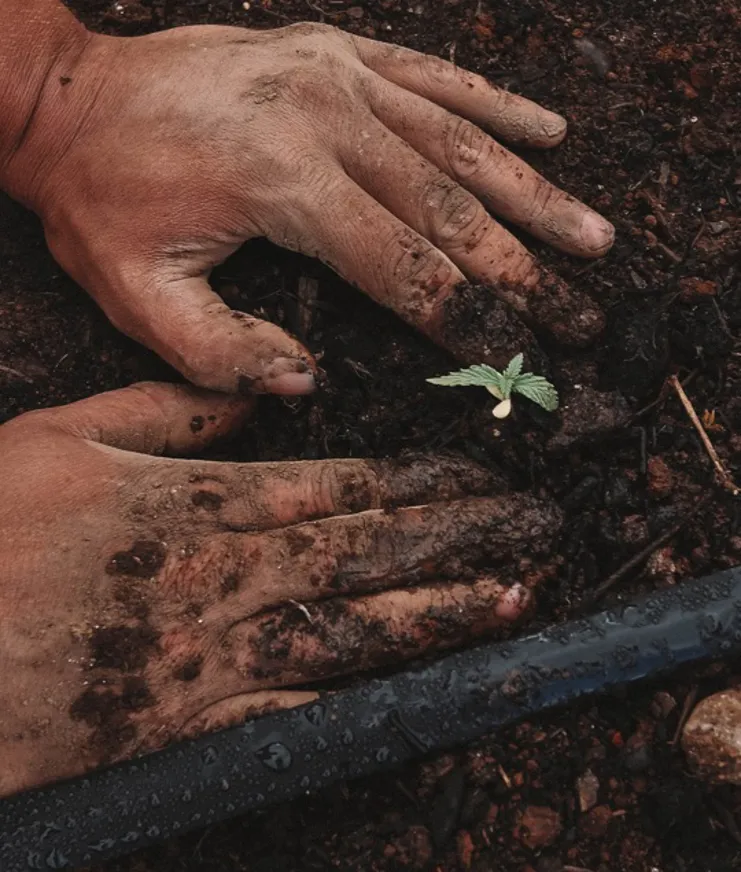
As you can see, I only traveled in the tropics. I first told Daniel, “If you want a palm tree I can help, but Cervo is 1,650 meters above sea level!” The mountain range, the climate, the winds—these are all really specific.
I got to know Richard, a retired man down the valley, who has a permaculture garden. He became my expert and we built a friendship over time. Whenever I have a question, I ask him. We created the herb garden together, considering the right position for each plant. When I’m not sure about something, I bring in an expert.
Yes, there have been many surprises. When we decided to go organic, we reached out to our supplier—a big supplier that works outside of Zermatt, too—and they told us we were the first to ask for organic vegetables. It was shocking! One of those moments you don’t forget. But eventually we made it work.
We had an idea to create a cooperative in Zermatt, as more restaurants are popping up that care about high-quality food. Two weeks after we talked about the collective, the lockdown came. This is still on our list: to create a collective within Zermatt so we don’t have to fight this fight on our own.
What I think is nice about sustainability is that it’s not a competition. We’re not sharing secrets; having more organic restaurants is just better. We’re going hand-in-hand to do something good. It’s important to find people, communities, and companies that want to get stronger together. If we as a collective order more food, we have more power. We don’t need to be pioneers by ourselves.
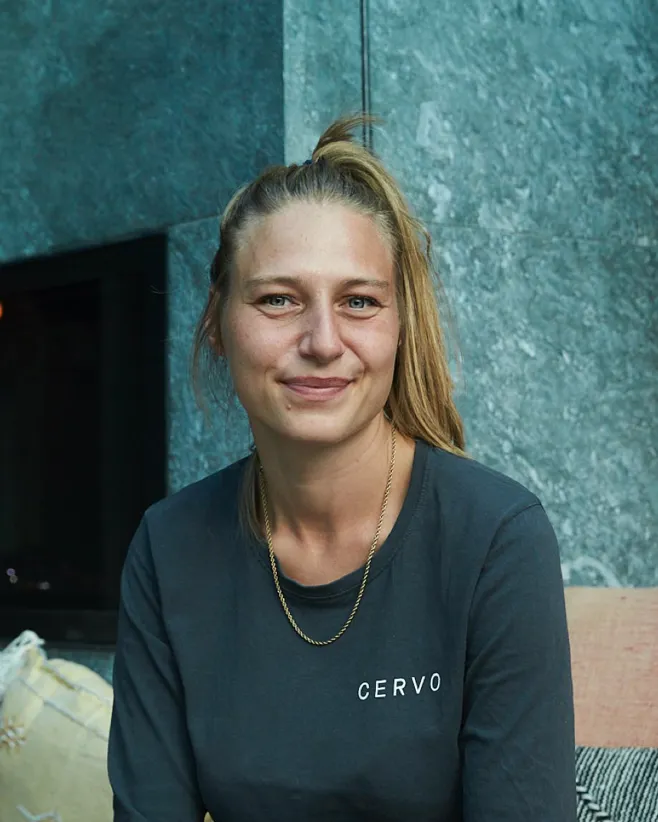
Image Jaclyn Locke
Madeleine Dias de Rezende
It gives me hope to see how many cool, like-minded places are opening. It’s clear that younger people are more interested in sustainability and I’m glad that there’s this change in the industry. It’s no longer a grand hotel with a red carpet and 20 people waiting when you arrive. Hospitality is now more casual. But most of the hotels here are still of the older generation, and it’s hard to change their minds. But this is a transitional time. It doesn’t take away my optimism.
Our concept is based on finding cool products that are not mainstream and are sustainable in some way. We have a lot of handmade, artisanal products. All of our pastas and ravioli are handmade. We have organic wines, natural wines, and wines from the valley.
Ferdinand is our Swiss restaurant, with raclette, grilled meat, and local dishes. All the food comes from the surrounding Valais. The cheese comes from free-range cows that eat local feed. And we’re lucky that Italy falls within that radius.
Coffee is a great example. Our coffee is from Desta’s Coffee, owned by a man who is half-Ethiopian and half-Swiss. One of the tricky things with coffee is that it’s listed on the stock market. That means a coffee farmer in Ethiopia may get one dollar one day and two dollars the next, which is not reliable. Desta started his own coffee trade working with small farmers around the highlands in Ethiopia and has a fixed price. Ten percent of the income goes straight back to the local region for infrastructure and needs. He doesn’t have an organic label, but in this case we don’t think he needs it. If it’s benefiting small farmers who work hard for their families every day, this is enough for us.
Food has a giant impact on our footprint, not only from waste but from packaging. Now, we are working with MyClimate to offset our emissions. We charge a small fee on our house beer and our meat dishes. I’m really proud of this—our compensation has risen a lot since we made the change.
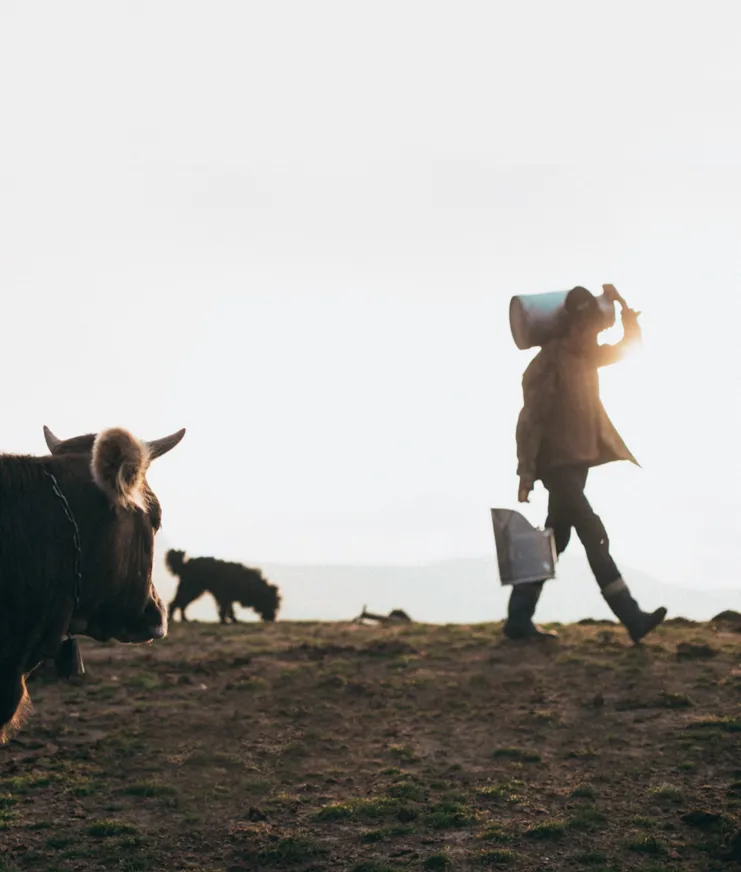
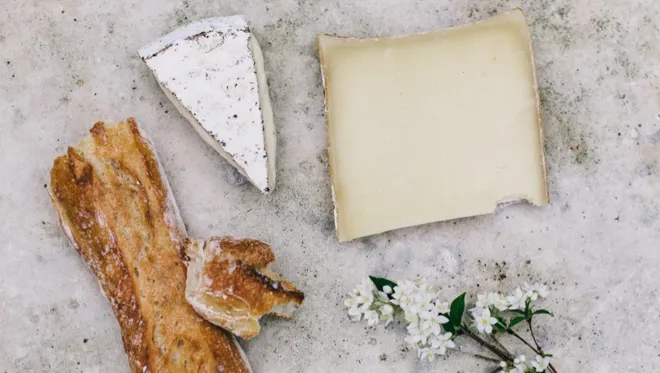
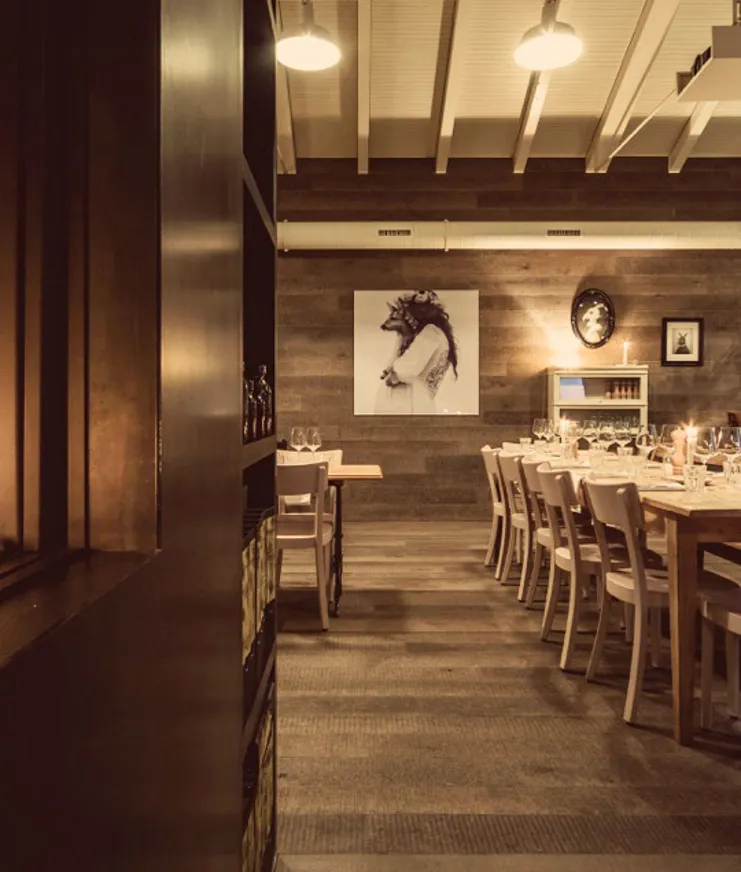
Ferdinand is the Swiss restaurant, serving dishes sourced from the local valley
Many of the guests don’t notice that there is a fee, but we haven’t had complaints. I think we need to understand what is happening before we can change it. Some guests might think, “why did I pay a fee only on meat, not in the vegetarian restaurant?” For me, if someone leaves with a question that takes them further, we won already.
If a guest is open to having a chat then it’s beautiful. Our water goes through an osmosis filter and comes out of a tap. When we bring the carafe to the guests, they often say “oh, it’s open!” and I get to explain that yes, it’s fresh, filtered water from Zermatt. Ten percent of our water income goes to sanitary projects around the world. And who doesn’t like to drink glacier water? This is a privilege. If someone is into it, we can talk for half an hour. Storytelling is fun. I love it.
Unplug your electric devices at home before you travel! I also forget this sometimes. And don’t run to McDonald’s right when you land. See what the people eat and integrate into the culture, which is the reason why we travel. Walk with open eyes through the world and be a good example even if no one is looking. That applies in daily life, too.
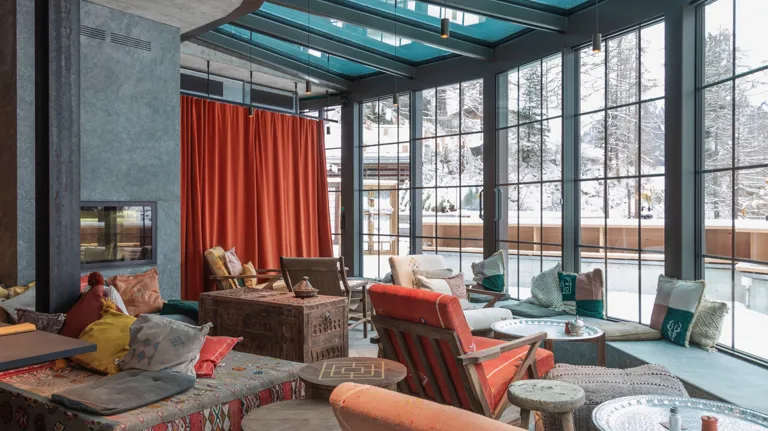
Bazaar is Cervo’s vegetarian restaurant, inspired by the markets of the East